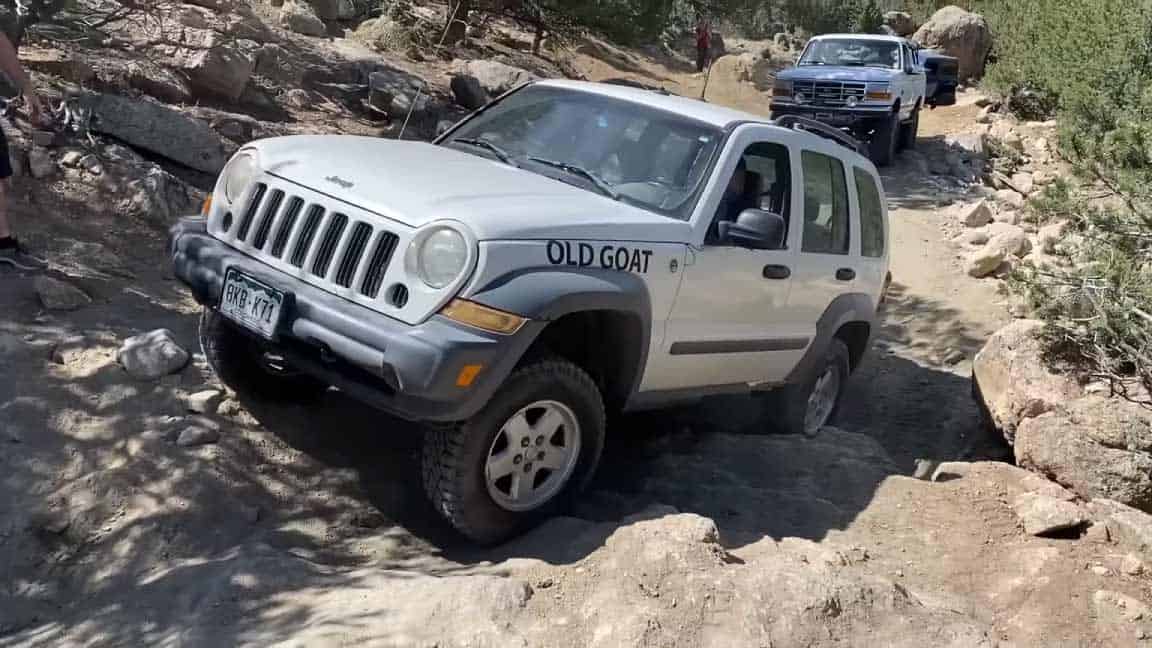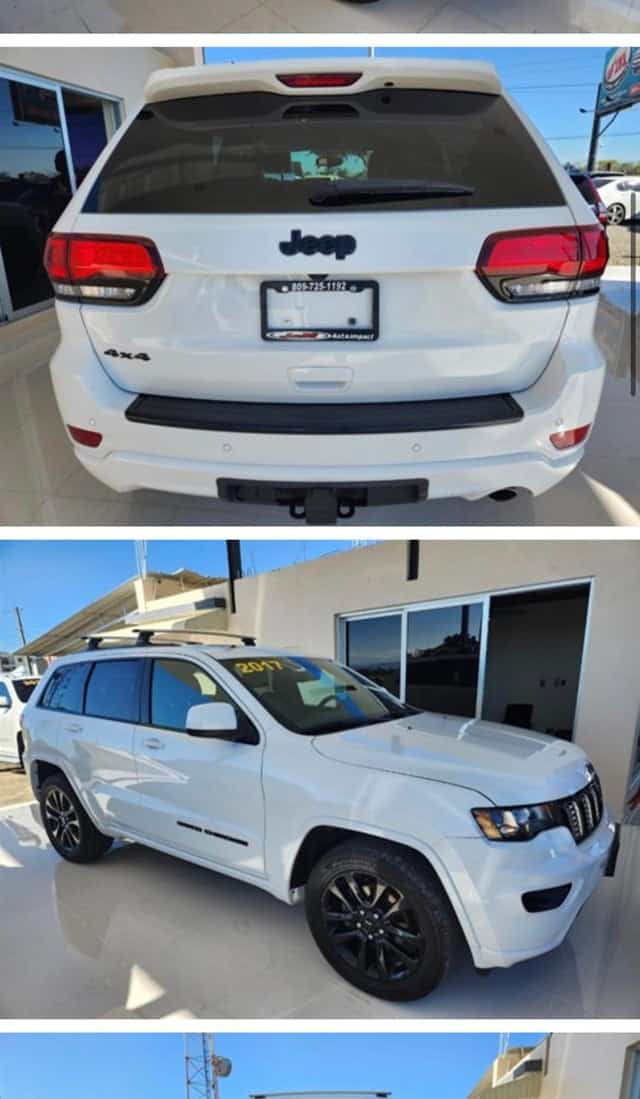Jeep Liberty Catalytic Converter Problems: Common Problems and Solutions
The Jeep Liberty, a compact SUV produced by Jeep from 2002 to 2012, has gained popularity for its off-road capabilities and versatility. However, like any vehicle, the Jeep Liberty can encounter problems with its catalytic converter. The catalytic converter is a critical component of the vehicle’s exhaust system, designed to reduce harmful emissions and promote environmental sustainability. Understanding the common issues associated with the Jeep Liberty’s catalytic converter is essential for owners and enthusiasts alike.
In this article, I will explore some common Jeep Liberty Catalytic Converter Problems with their catalytic converters and potential solutions to address them effectively.
So, Let get started.
Jeep Liberty Catalytic Converter Problems: Causes, Symptoms, and Solutions

What is a Catalytic Converter?
The catalytic converter is essential to your Jeep Liberty exhaust system. It reduces harmful emissions such as carbon monoxide and nitrogen oxides from the exhaust gases by converting them into less harmful gases like carbon dioxide and water vapor. It comprises precious metals such as platinum, palladium, and rhodium, which react with exhaust gases to catalyze the conversion process.
Common Causes of Catalytic Converter Problems
There are several common causes of catalytic converter problems that can lead to its malfunction or failure. Some of the most frequent causes include:
- Engine Misfires
- Oxygen Sensor Issues
- Fuel-related Problems
- Physical Damage
- Exhaust System Leaks
- Coolant or Oil Contamination
- Overheating
It’s important to note that the specific causes of catalytic converter problems can vary depending on the vehicle make and model.
Symptoms of Catalytic Converter Problems
If your Jeep liberty catalytic converter problems, you may notice some common symptoms. These include:
- -Reduced engine performance and power
- Increased exhaust emissions
- A rotten egg smell coming from the exhaust
- Engine misfires or hesitation
- Illuminated check engine light on the dashboard
Solutions to Jeep Liberty Catalytic Converter Problems
Here are the common causes of catalytic converter problems you mentioned, along with their respective solutions:
Engine Misfires
Solution:
- Replace faulty spark plugs, ignition coils, or fuel injectors.
- Repair any underlying engine issues causing the misfires, such as a malfunctioning sensor or a clogged fuel system.
Oxygen Sensor Issues
Solution:
- Replace faulty oxygen sensors with new ones.
- Ensure proper installation and calibration of the oxygen sensors.
- Fuel-related Problems
Fuel-related Problems
Solution:
- Repair or replace faulty fuel system components.
- Clean or replace clogged fuel filters.
- Adjust the fuel pressure to the manufacturer’s recommended levels.
- Physical Damage
Physical Damage
Solution:
- Inspect the catalytic converter for any visible damage.
- If the damage is minor, it may be possible to repair it. Otherwise, the replacement of the catalytic converter is necessary.
Exhaust System Leaks
Solution:
- Inspect the exhaust system for leaks and damaged components.
- Repair or replace any leaking gaskets, pipes, or exhaust manifold.
Coolant or Oil Contamination
Solution:
- Address the underlying issues causing the coolant or oil contamination, such as repairing a leaking head gasket or a faulty engine component.
- Replace the contaminated catalytic converter if necessary.
Overheating
Solution:
- Identify and resolve the root cause of the overheating issue, such as repairing cooling system malfunctions or addressing engine issues.
- Ensure proper ventilation and cooling of the catalytic converter.
It’s important to note that these solutions provide general guidance, and the specific steps may vary depending on the make and model of your vehicle.
The Benefits of a Working Catalytic Converter
A properly functioning catalytic converter is essential for maintaining Jeep Liberty’s performance and reducing harmful emissions. It helps protect the environment by reducing the pollution released into the air and improving your vehicle’s fuel efficiency.
Catalytic Converter vs. Straight Pipe
Some Jeep Liberty owners may be tempted to remove and replace the catalytic converter with a straight pipe. While this may increase your vehicle’s performance, it is illegal in most states and can result in hefty fines. Additionally, it will increase your vehicle’s emissions and contribute to air pollution.
2012 Jeep Liberty Catalytic Converter
The 2012 Jeep Liberty has a catalytic converter as part of its exhaust system. The catalytic converter is an emissions control device that helps reduce harmful pollutants in the exhaust gases before they are released into the atmosphere.
Suppose you have an issue with your Jeep Liberty’s catalytic converter, such as a malfunction or a need for replacement. In that case, taking your vehicle to a qualified mechanic or a Jeep dealership is recommended. They will be able to diagnose the problem and provide you with the appropriate solutions.
Consult a professional mechanic or dealership to determine the best course of action for your situation. They will be able to provide you with accurate information and guidance based on the condition of your catalytic converter and the local regulations in your area.
How many catalytic converters does a Jeep Liberty have
If you’re a Jeep Liberty owner wondering how many catalytic converters your vehicle has, you’ve come to the right place. The answer is that it depends on the year of your Jeep Liberty and whether it has a four-cylinder or six-cylinder engine. Generally speaking, most Jeep Liberty models have two catalytic converters.
The first catalytic converter is located close to the exhaust manifold, while the second one is downstream of the muffler. These are designed to convert harmful pollutants in your car’s exhaust into less harmful substances before they are released into the air. However, some newer models may only have one catalytic converter due to technological advances and emissions regulations.
It’s important to note that removing or tampering with these emissions control devices can result in hefty fines and even legal trouble.
Final Words
The hold article is toking about Jeep Liberty Catalytic Converter Problems. Jeep Liberty catalytic converter problems can affect the vehicle’s performance and emissions. Prompt diagnosis and repair by qualified professionals are crucial to address these issues effectively. Following recommended maintenance schedules and addressing other engine-related problems promptly can help prevent catalytic converter problems in the long run.
Frequently Asked Questions
What are some common Jeep Liberty Catalytic Converter Problems?
The Jeep Liberty may experience several catalytic converter-related issues, including clogging, overheating, and failure.
What are the signs of a failing catalytic converter in a Jeep Liberty?
Some common signs of a failing catalytic converter in a Jeep Liberty include a decrease in engine performance, reduced fuel efficiency, the appearance of the “Check Engine” light, and a sulfur-like smell from the exhaust.
Why do catalytic converters fail in Jeep Liberty vehicles?
There are several reasons why catalytic converters can fail in Jeep Liberty vehicles. Common causes include contamination from engine oil or coolant leaks.
How can I prevent catalytic converter problems in my Jeep Liberty?
While some catalytic converter issues are unavoidable, you can take certain steps to minimize the risk. Regularly maintaining your vehicle.
Can a faulty catalytic converter cause other problems in my Jeep Liberty?
Yes, a failing catalytic converter can indirectly affect your Jeep Liberty. It can lead to decreased engine performance, reduced fuel efficiency, increased emissions, and potential damage to other engine components, such as oxygen sensors.



